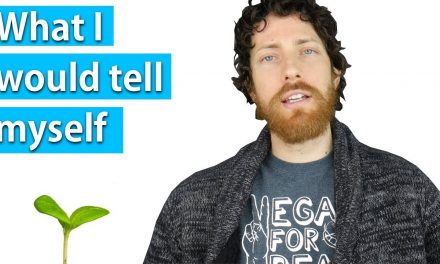Interview by / Vox
Listen to the interview here (partial transcript below):
Imagine you’re walking to work. You see a child drowning in a lake. You’re about to jump in and save her when you realize you’re wearing your best suit, and the rescue will end up costing hundreds in dry cleaning bills. Should you still save the child?
Of course you should. But this simple thought experiment, taken seriously, has radical implications for how you live your life.
It comes from Peter Singer’s The Life You Can Save, one of the most influential modern works of ethical philosophy. Singer is perhaps the most influential public intellectual of my lifetime. His book Animal Liberation helped build America’s animal rights movement and his work more broadly helped create the effective altruism movement.
In Singer’s hands, the questions that motivate a moral life are startlingly simple. But if you take them seriously, living morally is very, very hard. And the way most of us are living, right now — well, we’re letting a lot of children drown. What happens if we force ourselves to recognize that fact? What does it demand of us?
That was the topic of my conversation with Singer this week on The Ezra Klein Show. We also discussed the differences between ethical philosophy and religion, why moral reasoning is a social act, the ethics of caring most about those closest to you, AI risk, open borders, where our obligations to others end, why Singer wouldn’t have become a philosopher if he’d been an effective altruist in his youth, and much more.
You can listen to this conversation — and others — by subscribing to The Ezra Klein Show on Apple Podcasts, Spotify, Stitcher or wherever you get your podcasts. A partial transcript, edited for length and clarity, follows.
Ezra Klein
Why don’t we begin with the thought experiment at the heart of The Life You Can Save. Can you walk me through the pond analogy?
Peter Singer
Imagine you’re walking across a park. Somewhere in that park there’s a pond. You know the pond is quite shallow, but you see something splashing in the pond. When you look closer, you’re shocked to find that it’s a small child who seems to have fallen into the pond and is flailing around because it’s too deep for this small child to stand. So, you look around for the parents or the babysitter, but there’s nobody. There seems to be only you and the child. Your next thought is, I better run down to the pond, jump into the pond, and grab the child. Not hard to do. No risk to me because the pond is shallow.
But then it does occur to you that [saving the child] is going to ruin your most expensive shoes. You’ll be up for some hundreds of dollars to replace them and other clothes you might ruin. So, you think, why shouldn’t I just walk away and not have to go to the expense of replacing my shoes? Now the question for everybody is: If somebody did that, would you think that was really the wrong thing to do? Would you think that you had done something seriously wrong in leaving the child very probably to drown? Most of the people who I ask this of say that would be an awful thing to do — it would be terrible to allow a child to drown because you didn’t want to go to the expense of buying new shoes, even if they were expensive ones.
The point of the thought experiment is to then switch to the situation that we really are in. We live in an affluent society where we often have considerably more than we need to meet all our basic needs, enjoy life, and make reasonable provision for the future. We also are living in a world in which there are millions of children who die each year from preventable causes and there are effective organizations that would gladly accept a donation from you that would increase their ability to save some of these children. So, if you’re not helping to save some of these children, then are you really all that different from the person who walks past the child in the pond?
Ezra Klein
To put it more sharply: If I go out tomorrow and I buy an expensive pair of shoes — given that I could have sent that money to a group that donates malarial bed nets in Africa — then, according to this experiment, I am basically making the same choice as letting the child drown?
Peter Singer
Yes, you are making that choice. With everything that you buy that you don’t really need to buy you are making a choice between donating the sum you spend and buying whatever it is. Of course, some people will say, why not do both? But none of us have infinite bank accounts, so there is always a trade-off.
Ezra Klein
What is the limiting principle here? What is the right moral balance between spending your resources — be they money or time — on saving people versus doing or buying something that leads to a more pleasant life?
Peter Singer
If you’re asking about what is the point where I’m doing everything that it would be good for me to do and living a completely ethical life, it’s hard to find a stopping point until the point where if you gave more, your life would start to look like the life of the person you were giving to.
I think you could ask a different question: At what point have I done enough so that I don’t have to torture myself with guilt and I can look back with some kind of satisfaction and fulfillment? That amount, of course, will vary depending on how much income and surplus wealth that you have.
In The Life You Can Save I have a table where I suggest percentages that start from 1 percent of income and rise to a third of income for people who are very wealthy. What I’m trying to do there is to say, what can you give that is not a serious hardship but is making a really significant difference at the same time? I’d say that’s the point at which we ought to aim to get unless we are really the kind of people who think that we can be perfect in a way or close to perfect or near saints.
Ezra Klein
I want to hold on to that last question of what it takes to be a good person. The thought experiment you propose makes vividly clear that some of the very ordinary decisions of our lives — like my decision to buy a coffee at Starbucks this morning — can be viewed as evil.
That means being a truly good person is extremely hard. In contemporary society, we say you’re a good person if you love your family, you don’t kick puppies, and maybe give a little bit to charity or volunteer some time to your community. But your thought experiment suggests that to actually call yourself good is an incredibly hard bar to clear.
Peter Singer
I think that’s a little too strong. First, I think buying the coffee might be a bit selfish, inconsiderate of the needs of others, or just plain ignorant, but I wouldn’t call any of those things evil. I’d reserve that for a different kind of person.
In terms of saying that you’re not really good, that is a relative standard. You might be very good compared to what most people in your community are doing. If, let’s say, you give 10 percent [of your income], and you’re careful about finding the most effective charities to give to, then you would be doing much more good than most people are doing.
Now, you could probably give 50 percent and you’d still be vastly better off than people in low-income countries. And, by some standards, you’d have to at least do that to be really good. But it all depends on your framework and standard of comparison — whether it’s the more peer-group-related standard or whether it’s that more absolute standard of what really would be doing the most good with my life.
Ezra Klein
What do you think it means to live a good life?
Peter Singer
I certainly think that there are questions you should ask yourself. Did I try to live to make the world a better place — to reduce suffering for humans or for animals in the world? Did I think about how best to do that? Those are questions I think that you should be asking yourself.
At the same time, I don’t think you should be terribly hard on yourself if there were temptations that you succumbed to or if there were people that you loved and cared for more than you cared for strangers. But if you thought about this and spent a lot of time or wealth trying to help other people, I think you could die reasonably content with what you’ve done and feel reasonably good about yourself.
Ezra Klein
In the book, you profile some people who give away almost all of the money that their children would have inherited or who don’t spend much time at all with their own families because they’re trying to help others. Some of them argue it would be immoral to weigh their family’s interest much larger than that of the rest of the world’s.
I’m struck by how much some of that ethical framework actually mirrors a lot of what is in classical religions. Jesus says in Luke 14:26 that “If anyone comes to me and does not hate father and mother, wife and children, brothers and sisters — yes, even their own life — such a person cannot be my disciple.” Do you see a connection there?
Peter Singer
I see some similarities. But Jesus was offering people a reward in an afterlife, so he wasn’t asking people to be unselfish. He was appealing to people’s self-interest and I don’t do that. Although I do appeal to enlightened self-interest — the idea of giving yourself a purpose in life and feeling fulfillment through helping a lot of other people. But I think it’s very different from the kind of appeal that Jesus appears to have been making as reported in the gospels.
Ezra Klein
On the topic of partiality, you’ve written about expanding the moral circle. Humans have ingrained tendencies to very heavily weigh ourselves and our kin and our immediate community, but there’s a long set of religious and moral traditions that try to weaken that bond in us, and point out our obligations not only to other people but other species. What are the hooks that allow people to begin doing that work?
Peter Singer
I think having a really worthwhile purpose is a major hook. Once you get to the point where it’s not a problem for you to provide for your basic needs and for those of people close to you, then we in the affluent world tend to spend our time doing things that don’t give us a deeper sense of happiness or fulfillment. The research on what we get out of consumer spending shows that having, say, $150,000 to spend on yourself rather than $75,000 doesn’t really make a lasting difference to how happy you are. Once you’ve met your needs, then going beyond that doesn’t contribute greatly to your happiness.
I believe that being less partial, thinking about the world as a whole, and identifying with a humanitarian tradition that has tried to make the world a better place can make us happier. I should also mention being part of a community that lives this way also helps. And it doesn’t have to be a geographical community. It can be linking up with other effective altruists virtually and talking about what you’re doing.
How to weigh future catastrophic risk, choose your career, and think about art within the moral framework of effective altruism
Ezra Klein
You mentioned effective altruism. This is a movement that has, in part, grown up around your ideas. I’m curious, a decade on, what do you think of it?
Peter Singer
I think effective altruism has been a wonderful thing. I think it’s been a demonstration of philosophy really changing lives, and getting to people who are not even part of the university community discussing ethical questions. That’s important for the humanities at a time when the humanities are under criticism.
Also, effective altruism has made a significant difference in that hundreds of millions — soon to be billions — of dollars have gone to more effective organizations and thus done more good than they would have if the effective altruism movement had never existed. That’s really important.
Ezra Klein
One of the things a lot of people in the effective altruism movement have become very committed to is the idea of existential risk in the future. And their argument is that saving one child now is worth less than a 1 percent chance of saving a billion children in the future. What do you think of that argument?
Peter Singer
Mathematically, you have to accept that (unless you discount the future, which is a mistake). When it comes to the risk of extinction, there are some issues where we know with high confidence that we can reduce that risk; for others, I think we only have low confidence. So I think it’s reasonable to say that we should be putting resources into researching risks of extinction and into how we might reduce those risks.
However, I don’t like that question becoming the dominant public face of the effective altruism movement. I think that that would make effective altruism a quite narrow movement of reasonably sophisticated thinkers who go through these calculations and think about people living centuries into the future. That’s not going to be a large proportion of the population. So I’d rather have an effective altruism movement that talks a lot about effective altruism with regards to extreme poverty and talks a lot about what we can do to reduce the suffering of billions of animals right here and now, particularly the animals in factory farms.
Ezra Klein
One of the things that the “effective” dimension of effective altruism forces people to really embrace is rigor. What can you really measure? And that’s going to put an emphasis on the things that you can quantify and that are going to have certain payoff as opposed to things that are fuzzier.
Let me put the question this way. If you had adapted the mindset of effective altruism when you were deciding on a career, do you think you would have ended up studying philosophy and thus ended up doing all the good you’ve done? Or do you think that it would have pushed you toward something more pragmatic and financially maximizing so you could have donated that money?
Peter Singer
I have to admit that probably it would’ve pushed me toward doing something else. It could have been something financially maximizing. It could have been some other line of research which would have had more probable antecedent payoff than going into philosophy. I admit, I was not thinking along these lines and going into philosophy, I was thinking that this was an interesting subject. There are a lot of interesting issues in philosophy that I was interested in and wanted to pursue.
Ezra Klein
What does that say about that mode of evaluating your life — that it might’ve prevented the emergence of Peter Singer?
Peter Singer
Of course, if I hadn’t been there, quite likely some other philosophers would’ve come along and would have started taking up the issues that I took on. But I take your basic point: maybe effective altruists are too concerned about having high confidence that they’ll do some good and should be more prepared to take gambles in different fields.
I think that many effective altruists are aware of that. The leading website that really talks about career choice in effective altruism terms is 80,000 hours.org. When they started off, they did focus quite strongly on earning a lot of money to give away and made arguments about why that was better than going to work directly for a nonprofit (because you could pay for not just one but multiple positions at the nonprofit if you earned a lot of money). But now if you look at the website, they talk about going into research and even entering politics. So, I think effective altruism is more aware of this criticism than they were maybe five years ago and are starting to respond to it.
Ezra Klein
I want to bring in an example from my own life. This podcast will come out after one I recently did with Gretchen McCulloch, a brilliant linguist who wrote a great book called Because Internet about how digital mediums have changed the way we speak. It’s a fun and interesting podcast. But I could have spent that podcast turning hundreds of thousands of people onto somebody working on solutions for the problems afflicting the poorest of the poor. So where do the range of things that make life interesting — art, entertainment, music — fit under this model of living a moral life?
Peter Singer
Let’s first take the question of whether you should have had a different podcast — one that would have done more direct good — instead of the one with Gretchen McCulloch. The question is, if you only did those podcasts, would you still have the same audience that you have now? We have to face the fact that most people aren’t going to go just for the issues that are going to save lives or reduce suffering. I think that applies to the arts and culture more broadly. People are not going to accept the morally pure diet of worthy causes. So, there’s a place for those things.
Ezra Klein
I want to push outside of the strategic question, though. One of the fears about truly embracing utilitarian logic is it can make you into just a constant point-scorer in your own life and makes it hard to see how to value things in and of themselves. So do you think we should value art and culture not just for strategic reasons but as an important part of what makes human civilization worthwhile?
Peter Singer
That’s the question that I’ve gone around on and I find it difficult. I think value depends on improving the wellbeing and reducing the suffering of sentient creatures. And, of course, reading a novel or watching a sitcom may make people happier. Great art can even give you some greater sense of yourself and of the world and of purpose. But is there intrinsic value in their existence as such, independently of any of those effects on our data? Independent of improving the wellbeing sentient beings, I’m inclined to say ultimately, no.
Ezra Klein
If I watched your life for a week, would I see a sort of perfectly utilitarian existence or would I something that looked more mixed? Put another way, how much does this infuse your everyday schedule versus how much are you making the same compromises as the rest of us are?
Peter Singer
You would certainly not see a completely utilitarian life. You would see a life that was lived for partial purposes, particularly the time I spend with family and close friends. So, if I’m not working, that’s probably what I’m mostly doing. I read a couple of novels a year for a bit of a break or when I’m on vacation. I actually watch virtually no television.
Why we love animals but eat meat, and what that says about human nature
Ezra Klein
You played a big role in launching and building the moral framework of the animal liberation and rights movement in this country. Today, decades on, how would you assess the successes and failures of that project?
Peter Singer
I would say that it has had clear successes, but it hasn’t had as much success as I think it should have had given just how clearly wrong the way we’re treating animals now is. By that I’m particularly referring to factory farming because that’s where the overwhelmingly vast quantity of the suffering that we’re inflicting on animals takes place. Worldwide, we are talking about 74 billion animals reared and killed each year for food. This dwarfs everything we do to dogs and cats and everything we do to lab animals. And that number has not shrunk. In fact, it’s grown since I published Animal Liberation in 1975.
Ezra Klein
A key idea in the framework you build in Animal Liberation is the idea of speciesism. Can you talk a bit about what that is and how it operates?
Peter Singer
I understand speciesism, like racism and sexism, as a prejudice that a more powerful group has against those who are less powerful. As a result of this prejudice, the more powerful group exploits the less powerful group for their own ends and also adopt a whole set of ideas about the inferiority of the less powerful group. I think that does describe pretty clearly the way humans think about and act toward animals. Just as, for example, it describes pretty clearly the way in which Europeans enslaved Africans, transported them across to the United States, and sold them.
I’m not saying this is a complete comparison in every respect — far from it. But I think those aspects of this prejudice do relate pretty clearly to racism of the kind that justified slavery.
Ezra Klein
Should the interest of human animals be taken as equal or is there some level of speciesism that is appropriate?
Peter Singer
My understanding is that we should give equal consideration to animals where our interests are similar. But that does not mean that all of the interests that nonhuman animals have are similar to all of the interests that humans have. I don’t think it’s speciesism to say, for instance, that killing a human being who wants to go on living, who has plans for the future, who’s aware of his or her future, is the same as killing a nonhuman animal who isn’t capable and doesn’t have the cognitive capacities to think about what they’re going to do in the distant future.
Ezra Klein
It seems to me that the framework of speciesism would be a lot simpler if people valued all animal lives at zero. But they don’t. People love their dogs and their cats. It’s considered a mark of sociopathy if you torture animals when you’re young. How do you think about what is happening in people’s minds when they share dog and little sheep gifs on the internet and then participate in animal agriculture?
Peter Singer
There is a huge disconnect there, but I do think that can be a stepping stone to thinking about animals as a whole. I often try to argue by saying, you love your dog and you wouldn’t lock your dog so that your dog was really unable to move. But did you know that pigs are just as intelligent as dogs? They’re social animals, too. And yet that’s exactly how pigs are treated on factory farms.
But it remains true that most people who love dogs and cats still do consume other animals without very much thought about it. I think that behavior represents a refusal to look at the facts about the nature of the animals who we eat and how they are being treated.
Ezra Klein
I’m vegan now but previously ate meat with relative abandon and Instagrammed photos of hamburgers. And I did so despite that fact I had read your book and believed everything I do now about an animal’s ability to feel pain and suffering. For a long time I had a certain moral framework and I just ignored it. There are plenty of us who do that every day: We close ourselves to what we know, either intellectually or intuitively, is moral. What is your understanding or model of how that disconnect works in all of us?
Peter Singer
I think a lot comes down to who your peers are and what your community is doing. Even after you read my book but were still eating hamburgers, I imagine that this was what all of your friends and other people that you knew were doing, and it was hard to break from that. I think humans are social animals and we do tend to follow what others do and take our lead from other people. So, I think that’s a part of it.
Ezra Klein
Your intuition is actually right on that. What made the difference for me was that my wife became vegan and that was the social support that got my vegan diet to stick. If moral reasoning is a social act, that implies that one of the most powerful acts people can engage in is to change what societies believe to be moral or immoral. If everybody agrees that we all need to be donating, say, 10 percent of our income to be a decent person, then it will be easy. But to the extent that it feels like you’re doing something nobody else is, or even more, you’re doing something that leaves you shunned by others, then it’s harder to follow through with it.
Peter Singer
There’s a sociologist called Alvin Gouldner who wrote an article many years ago called “The Norm of Selfishness” and he pointed out in the United States at that time (and it’s still true to some extent) wealthy people actually didn’t talk very much about their philanthropy. They didn’t talk about it because the norm among that group was to get as much as you can. I think we have to try and get rid of that norm.
Ezra Klein
Part of the problem too is that we have a lot of norms that conflict with that directly. You talk in the book a bit about how many of the religious traditions prize the idea of charity being an anonymous, humble, quiet act. It seems we are much more comfortable with people flaunting their wealth than flaunting their virtue. We don’t like it when people do that. It makes us feel like they’re saying they’re superior to us. It makes us feel bad.
For me this raises the question: Is giving about more than the charity you give to? Is it also about signaling that it is something you are doing, so other people feel at least that little bit of either social acceptance or even social pressure?
Peter Singer
I’m an advocate for publicity in terms of the fact that you’re giving, because I’m persuaded by the psychological research that shows that other people are more likely to give if they know that their peers are giving. There’s pretty good evidence of that. So I think you do need to let people know that you’re doing something significant.
Lightning Round: Singer on AI risk, open borders, cell-based meat, having children, and more
Ezra Klein
I want to get your take on some of the trickier ethical issues today. One is artificial intelligence risk. What do you think of the argument that AI is an existential risk to the future of humanity?
Peter Singer
I think that clearly poses some possible risks, but I’m not convinced that we can do very much about it now. My guess is that we’ll be in a much better position to know how to prevent AI risk 10 or 20 years down the line.
Ezra Klein
Having children increases various kinds of resource pressure on the environment and redirects parents’ time and resources away from those who are suffering toward their own kids. Is having children a moral act?
Peter Singer
I think it is. Whether you think that ethics are imparted to children through their education and home upbringing or whether you think it’s genetic, if people who think ethically stop having children and people who don’t think ethically continue to have children, the future of the planet is not going to be very good.
Ezra Klein
Is open borders a moral imperative?
Peter Singer
If the public as a whole was more accepting of the idea of mass immigration. But given that concerns about immigration have clearly brought about the election of Donald Trump, the Brexit vote, and the election of right-wing governments in Hungary and Poland, I think that the moral imperative is not to have open borders.
Immigration is an important issue, but it’s not the only issue. I think climate change, for example, is a significantly more important issue, and all of the conservatives who get elected on the anti-immigrant bandwagon have been opposed to taking any serious steps to prevent climate change.
Ezra Klein
There are people who argue that what really makes human beings more moral over time is simply GDP growth — as economies become richer, people have more of the psychological preconditions met for acting altruistically. Is the best thing we can do for the future to grow the economy as much as possible?
Peter Singer
I do think that it’s important that people are not struggling to meet their basic needs. But I don’t think it’s important to grow the economy beyond the stage at which people’s basic needs can be met. In the case of the United States, I think we have a big enough economy for that. We just don’t distribute it as well as some of the European countries do.
Ezra Klein
A related version of that argument is that technological change is what really leads to moral change. I think in the animal rights space you can actually see this pretty clearly. In polling you have about the same number of vegetarians and vegans you had 15-20 years ago. But as current meat replacements improve and the possibility of cell-based meat becomes more likely, there is at least a possibility of pretty large-scale change in the future. So, one argument is that the most moral work to do is simply pursue scientific advances in the spaces where people’s moral intuitions would be hard for them to follow.
Peter Singer
I do think that is very important work. I think finding economical, healthy, clean, tasty alternatives to the animal products we’re consuming is extremely important both for the animals and also in terms of climate change because animals contribute a lot to greenhouse gas emissions.
Ezra Klein
Do you think public shaming is effective at getting people to act more ethically?
Peter Singer
It’s certainly effective in some cases. The problem is that it’s not always well-directed to where the most harm is. Tourism to the moon seems to me to be something that people should be ashamed of. The fact that you’re wearing a $10,000 watch on your hand when you could tell the time just as well with a $50 watch ought to be something that people are publicly shamed about. I think that we need to direct the public shaming where it really will do the most good.
Ezra Klein
What’s the area of your life where you find it hardest to put into practice your own philosophical principles?
Peter Singer
I’m still living higher than I ought to be. I’m giving away somewhere between a third and a half of what I’m earning most years, but I could be giving more than that.
Ezra Klein
What is the one policy that if it were implemented that you think would do the most good?
Peter Singer
It would probably be something connected with climate change at the moment. Whether it’s subsidizing clean energy or a carbon tax or a cap-and-trade scheme. Whatever will do the most to slow climate change and, hopefully, eventually reverse some of the effects that we’re already having would do an incredible amount of good — not just now, but for centuries to come.
You can download a free copy of the 10th anniversary edition of The Life You Can Save at www.thelifeyoucansave.org/the-book















